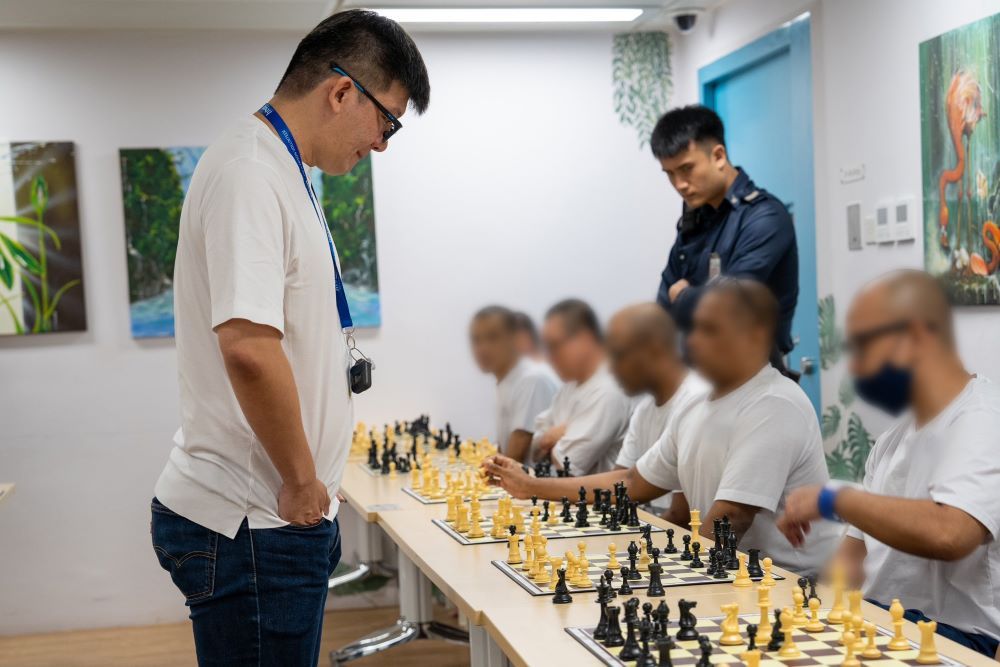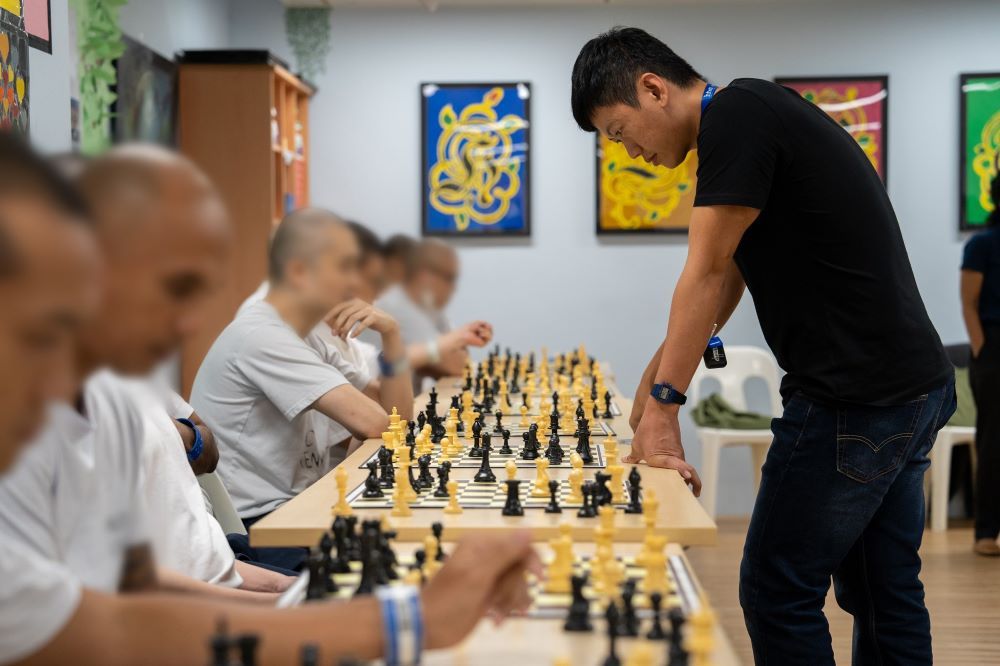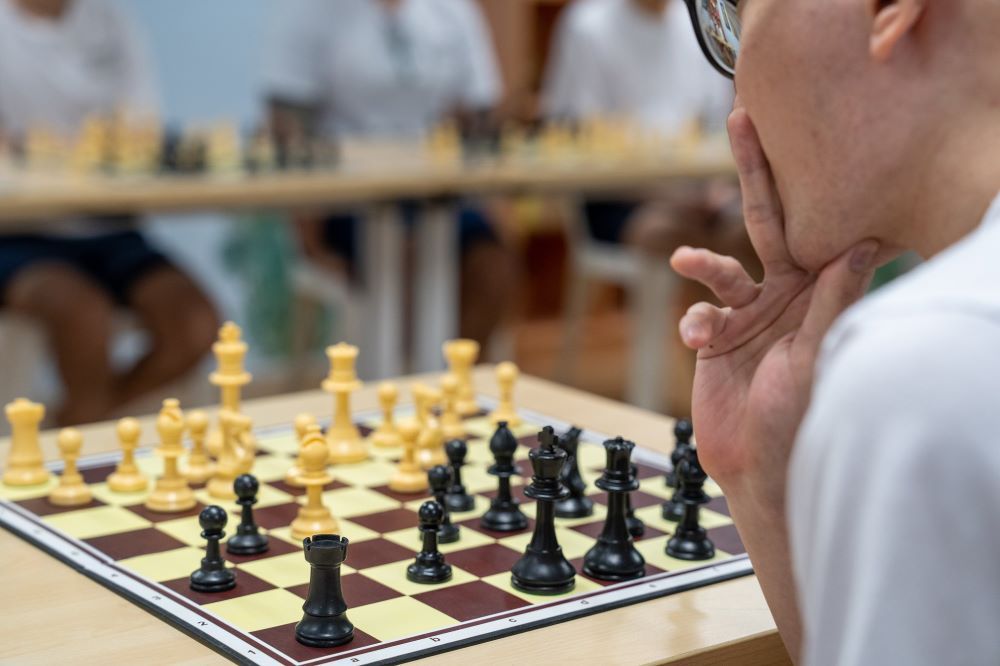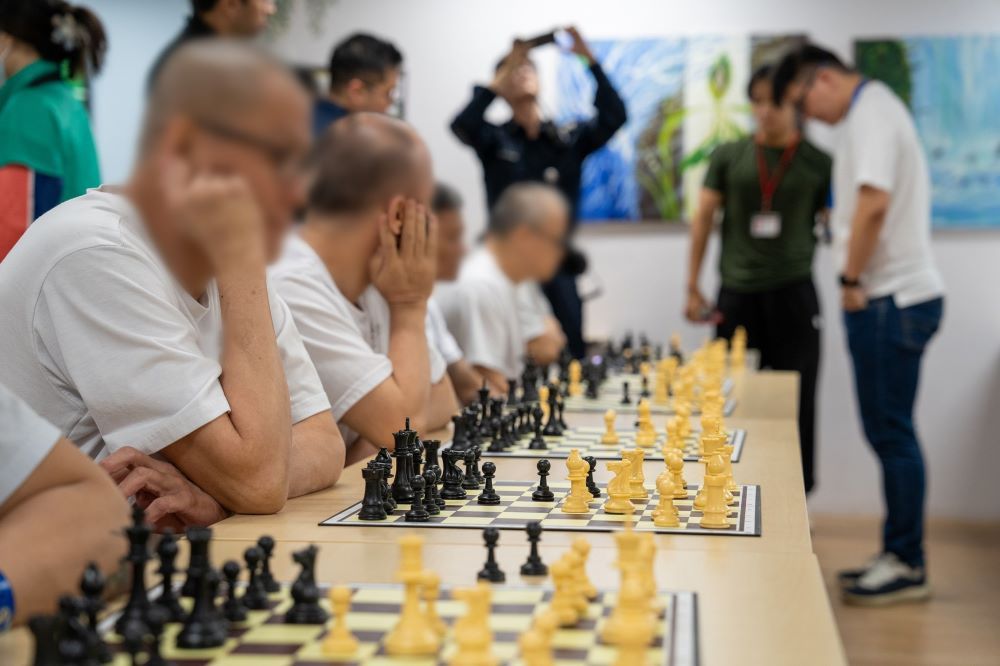


ChessBase 17 - Mega package - Edition 2024
It is the program of choice for anyone who loves the game and wants to know more about it. Start your personal success story with ChessBase and enjoy the game even more.
An interview by ChessBase India’s Sagar Shah
Sagar Shah (SS): How did this idea of chess in prisons come about?
Kevin Goh Wei Ming (KGWM): This idea was conceived as long ago as 2020, when we were planning to run for the SCF Elections as an executive council. At that time, we were thinking of ideas to promote the many benefits of chess to the general public, and the idea of using chess as a rehabilitation tool for inmates surfaced. We did our research by checking FIDE’s initiatives and decided to give this a go.
Attack like a Super Grandmaster
In this Fritztrainer: “Attack like a Super GM†with Gukesh we touch upon all aspects of his play, with special emphasis on how you can become a better attacking player.
SS: How many people went and taught? Was it you alone or did you have a team?
KGWM: We now have a big team of about 15 volunteers. I am the chief trainer, and the rest of the team supported me as assistants. All the volunteers are chess lovers, and helped the inmates to better understand the curriculum and helped them solve exercises. I am truly appreciative of the team, as many of them sacrificed their own annual leave to be part of this program. Big shout out to Benson, JL, Anupam and Carleton and, of course, Director of Rehab and Reintegration Ms. Caroline Lim, Supt Soon Theen and prison officers Naufal, Miko and Wee Siong for giving us the best possible support!
SS: How was the first session? Were they surprised that chess was being taught to them?
KGWM: Honestly, we had absolutely no idea how the sessions would be like! The first session was a simul exhibition, where I played against 18 opponents, while Carleton had a tough time facing 16 inmates. When we first discussed this idea with the Prisons Services, we thought that it would be a success if five beginners showed up to learn how to move the pieces. It was a pleasant surprise that there were already so many inmates who love chess and who are keen to learn more from us.

Carleton playing a simul exhibition against the inmates
SS: How did you design a curriculum for them?
KGWM: We put a lot of thought into each session because we recognise that the inmates are a different type of chess enthusiasts as compared to, say, young children who are just starting out. The approach to teaching has to be very different, as we had to recognise that the inmates come from a wide variety of family backgrounds and education. For example, some of the inmates were not able to speak English, so I often have to translate some words on the spot. We also have volunteers who would help with translation along the way.
Our first training session (after the simul) was therefore a quick review of some of the games played at the simul, and common opening principles and mistakes. For instance, things like developing knights before bishops, controlling the centre, castling early and connecting rooks, not pushing too many pawns as these create weaknesses and so on. We also took time to go through chess notation and common terminologies so that everyone would be familiar with words like fianchetto, tempo, blunders, prophylactic thinking, bishop pair and so on. As an experienced player, I take these things for granted — it’s very easy to forget that these words mean very little to those who are still new to the game!
We then had an elaborate analysis of the most famous game of all time, the Opera House game, and explained how the opening principles were applied by Paul Morphy. All the critical moments were discussed at length and the inmates were given the chance to find the correct move. We then moved on to common tactics, and I showed one example of a typical motif, say a pin or a skewer, and then passed them a bunch of exercises for them to solve.
To my utter surprise, the inmates complained that they really need more puzzles to solve in the following week!}
Understanding Middlegame Strategies Vol.7 - 9
Let Toptrainer Sokolov show you the ins and outs of middlegames. This course is about the catalan structures vs. semi-slav/triangle setups

SS: Can you share some anecdotes/stories of how chess is helping the inmates?
KGWM: Well, first of all, the immediate feedback from the prison officers is that the inmates are more motivated to stay well-behaved, as they would not be allowed to attend classes if they break any rules. Chess has also given them something to focus on and also built friendships — an inmate told me that they started solving the puzzles together in teams. Another inmate told me that he loves solving the exercises, as getting them correct gave him confidence. Most importantly, chess has brought joy to them in a way that perhaps serious, competitive players may never understand.
SS: Chess in prisons is something that FIDE is greatly supporting. Having spent so much time with the inmates, what is your personal take on it? What are the tangible benefits?
KGWM: I think the greatest tangible benefit that we can hope for is to see less repeat offenders, i.e. prisoners who have served their sentences and committed crime again. The Singapore chess community is a warm and welcoming one, and we hope that being introduced to various chess clubs around the island would help these inmates make new friends, feel part of an identity, and support them while they find their feet.

The simultaneous exhibition by GM Kevin Goh Wei Ming in progress
SS: What are the future plans with them?
KGWM: We will be introducing competitive chess to our local inmates, and will shortly organise a mini tournament within cluster B. There are ambitious plans to also bring chess to other clusters, and eventually we can have an inter-cluster team tournament. The ultimate goal is to participate at the FIDE Online Championships for inmates and give our best possible showing.
The tweet by GM Kevin Goh Wei Ming that prompted us to get in touch for this interview.
Master advanced Tactics and Calculations like a super Grandmaster
The Indian chess grandmaster Vidit Gujrathi with an ELO of over 2700 (June 2023) is one of the best 20 players in the world. For the first time, the sympathetic top player presents himself in a video course. Let a world-class player show you tactical moti
We have had 4 sessions of chess lessons, each time about 2.5 hrs at the Singapore Prison Services. The particular cluster that we taught at is called “B1”, the maximum security institution. Many of the prisoners have lengthy sentences, some of them even life sentences. We have… pic.twitter.com/QVAWtZYGwI
— Kevin Goh Wei Ming (@kevingohwm) October 5, 2023
Kevin Goh Wei Ming played at the 2023 FIDE World Cup
This man left his job to grow chess in his country
GM Kevin Goh Wei Ming on deep opening preparation with 1.e4
| Advertising |